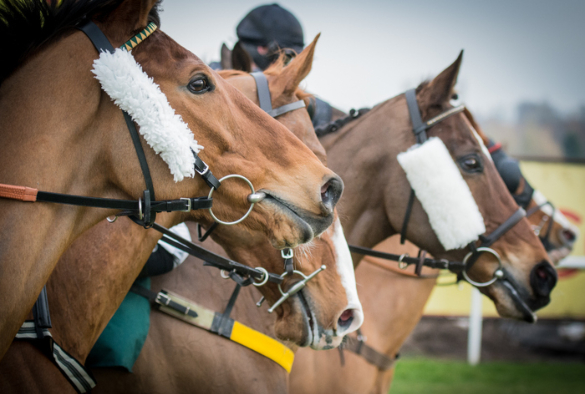Each year, the University of Liverpool’s Philip Leverhulme Equine Hospital provides expert veterinary support for the Grand National Festival, the most famous event in the UK horse racing calendar.
During the three-day festival, our equine vets will be working at Aintree Racecourse and enabling access to the hospital’s state-of-the-art facilities at Leahurst for any horses requiring specialist care.
Ahead of the event, Dr David Stack, a Senior Lecturer in Equine Surgery, chatted to BBC Radio Merseyside about the hospital’s work and the important focus placed on horse welfare in racing.
Tell us a bit more about what you do?
“The Philip Leverhulme Equine Hospital is a referral hospital and also a veterinary teaching hospital. Our two core priorities are to care for the animals and horses that are sent to us by our referring vets and, secondly, to train the next generation of vets. So, we are privileged to work with some of the most dedicated, energetic and smart vet students in the country to provide care to our horses.
“We all sincerely hope that our services won’t be required during the Grand National, but we are here ready if needed. We will have a number of teams on standby at all times with specialisms in a variety of different areas that should cover any eventuality.”
What kinds of tools and technology do you have to look after horses?
“We’re very lucky here at the Leahurst campus to have every modern piece of equipment that we could ask for. We’ve got a wide bore CT scanner, MRI scanner, and nuclear scintigraphy (bone scanning) unit. Really everything that the NHS has available for human patients we have available for horses here.
“We also have cameras that can investigate problems inside of horses, including ones that can go on board while horses are exercising to evaluate their airways.”
How much of a priority is horse welfare in horse racing today?
“Horse welfare is an absolute priority for everybody within the industry; from grooms in racehorse yards to owners, trainers and vets who work with racehorses. The British Horseracing Authority’s Horse Welfare Board is really trying to look at and improve animal welfare. The Board has devised a five-year strategy to improve the welfare of horses called ‘A Life Well Lived’ that aims to improve welfare all the way through from the time they’re born through their racing careers to retirement and beyond.”
How has the safety of courses improved over the years?
“In terms of facilities and the service provision, significant improvements have been made in recent years. The Aintree track for example includes things like pre-race vet checks, appropriate post-race facilities for cooling down horses and other course safety measures like steering loose horses, horses that have unseated their riders, away from the main pack.
“Research performed by colleagues at the University of Exeter has found that horses can see jumping fences better if they’re painted in white, so that is also a change that will be coming down the line and the BHA have indicated that that change will come in due course.”
Finally, will you be watching the race on Saturday?
“I will certainly have one eye open on it and it would be a bit rogue of me if I didn’t support the Irish, so I’ll be cheering for Rachel Blackmore on board Minella Times!”
